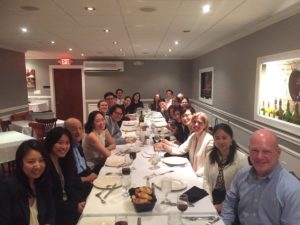I recently returned from a trip to five major US cities in the Northeast – New York, Middletown, New Haven, Boston, and Washington, DC – via the Incheon International Airport in Seoul from May 15 to May 29. The trip was planned around the East Asian Policymaking Workshop at Wesleyan University. Because the trip was the first after the presidential election, my focus was on trying to get a sense of how the society was coping with the tumultuous period of instability.
In my observation, the hardware – had hardly changed since my previous return, but the software – mindsets and attitudes of the people – had changed significantly.
On the way to New York, South Korean president Moon Jae-in was announcing new policies for South Korea’s energy composition, declaring the closing down of decades-old coal and nuclear power plants, thereby alluding to the need for more LNG imports.
In New York, I spent time revisiting the United Nations Headquarters and collecting documents from the United Nations Archives and Records Management Section digging data on the Oil-For-Food Programme for Iraq which was run from 1996 to 2005. I am hoping that I can develop a piece comparing the reconstruction processes after the Gulf War and the Iraq War through my research, possibly in fall of 2017. UN ARMS places confidentiality on items dating back to 20 years, so it is only very recently that some documents became available to the public for research purposes. Technically, in order to have full access to all documents, I would need to keep visiting the archives until the year 2030.
(During my stay in New York, there was an incident at Times Square which was determined as a DUI rather than an act of terror, and an hour later, another one occurred in Staten Island. Both incidents were reported as criminal acts by dissatisfied citizens of the society.)

With participants at the 2017 East Asian Policymaking Workshop at Wesleyan University. Conversations over dinner with amazing colleagues and mentors. Middletown, CT. May 20, 2017.
I moved on to Middletown from Penn Station via Amtrak for the where a series of presentations and networking sessions as well as meetings with editors and consultants who care about the visibility of academic work and academic profiles were held. The field is a tough terrain for many female academics, and it was a wonderful opportunity to network with many colleagues who encounter similar issues as we build our careers – all thanks to the initiative taken by Professor Mary Alice Haddad of Wesleyan University.
After brief visits to New Haven and Boston for reunions with my best friends and for meetings, I headed to Washington. It was an eventful visit – a live interview recording with CGTN America on South Korea’s chaebols; several events at the CSIS on energy (oil and LNG mainly), nuclear missile deterrence, and Asia maritime security; another event on Iraq reconstruction at the NDI; visit to my previous workplace, the East West Center in Washington; amongst several other individual meetings catered toward my ongoing article-length research projects and reunions with my dearest colleagues and friends. But the political climate of Washington had changed significantly.
By the end of my trip I learned of an upcoming Japanese politics workshop to be held at Yale by Professor Frances Rosenbluth next spring. I am hoping to submit my Japan chapter of my book project there. I imagine by the time I visit next time, things will have played out – hopefully they will have run its course.
